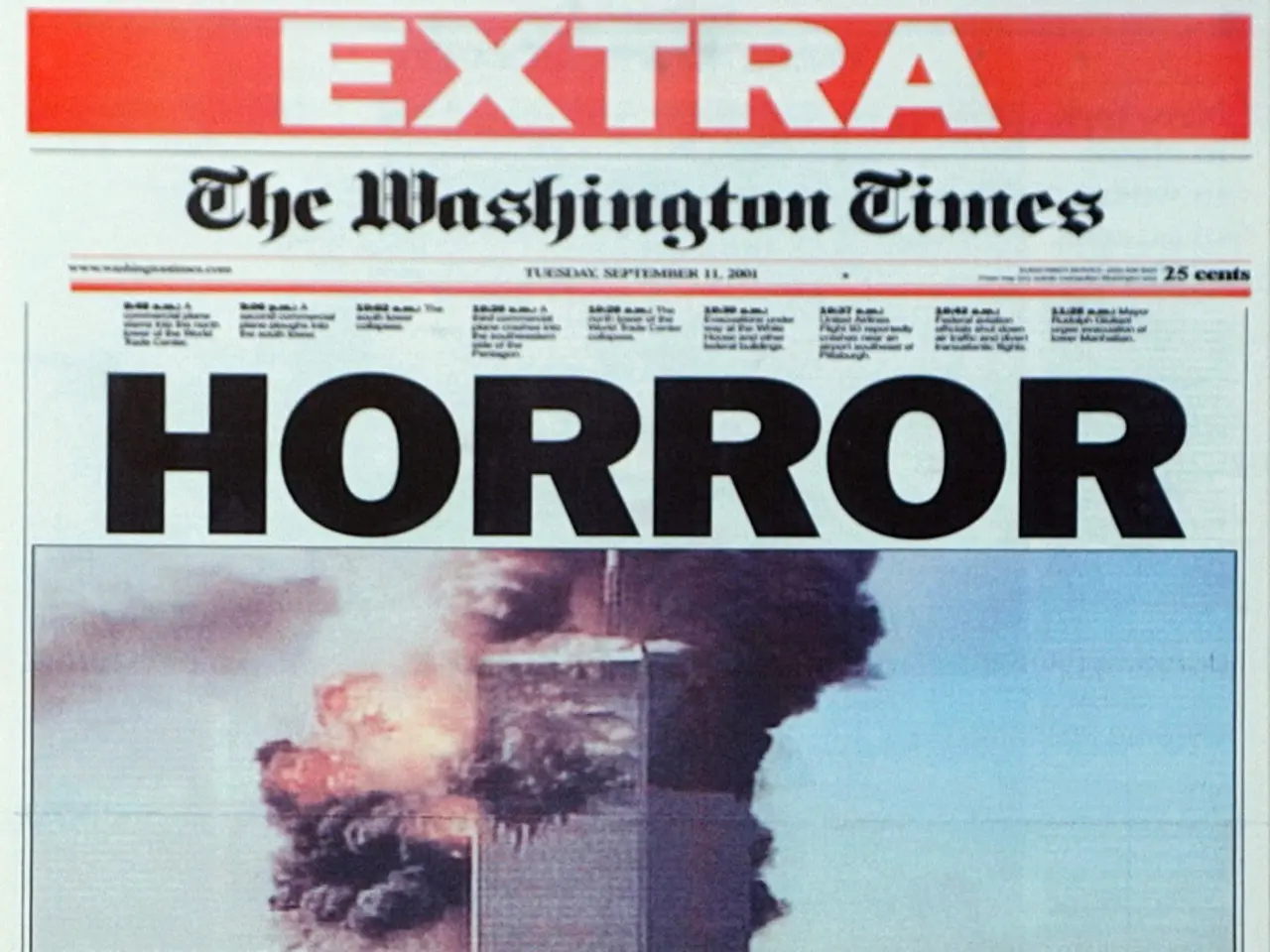Iranian State's High-handedness: Unabashed Display of Power
If the truce sticks, Trump's the man of the hour. The self-styled maverick, who typically keeps his finger on the pulse of chaos, has pulled off a Wild West-style victory in this instance. First, he dismisses the thwarted Iranian rocket attack on the US military base in Qatar, even thanking Iran for the heads-up, and voila! — he presents a peaceful resolution to the hostilities.
Who reigned supreme, who ran for cover? Iran's ruling class is under the influence of a self-induced delusion, convinced that Israel has bowed to Trump's truce terms, making Iran the victor of the twelve-day skirmish of rockets and drones. Israel, on the other hand, views itself as the conquering hero, trumpeting its policy of strength that has not only met its objectives but surpassed them. It's a given that the Israeli military has severely constrained Iran's defensive capabilities. The future will be a concern for the regime as they grapple with safeguarding the nation and the Islamic system.
Celebrating the unconditional backing of Israel's questionable actions during the assault on Iran, supporters can finally heave a sigh of relief, convinced they were right because Israel achieved its ends. However, the breach of international law remains unhealed.
The Iranian opposition movement and the residents of Gaza are the real victims. Their suffering has persisted during the war between Israel and Iran and will not find an immediate end with the truce. Trump has managed to save the Islamic Republic from collapse — a bitter pill for oppositionists to swallow, both at home and abroad, who—though not craving war—had hoped for the downfall of the despised autocratic regime.
In the dance of victors and vanquished in the Israel-Iran conflict, the following players can be spotted twirling in the limelight:
Winners
- Israel: Portrayed as the uncontested winner of the 12-day clash. Israeli Prime Minister Benjamin Netanyahu declared that all the objectives of their military campaign against Iran were achieved, including neutralizing what Israel termed "two existential threats": the perceived threat of a nuclear Iran and the alleged threat of 20,000 ballistic missiles that Iran was supposedly preparing.[1][2]
- The United States, particularly under Donald Trump's influence, is hinted to have gained indirectly. Trump's administration framed the conflict in terms of winners and losers, implying US support for Israel's victory over Iran’s ambitions.[1][3]
- Benjamin Netanyahu himself also emerges as a political winner. After a stint of political vulnerability, Netanyahu has resurfaced with a stronger image and is lauded for orchestrating a regional reset by dismantling Iran's proxies and adversaries across several fronts, thereby fortifying Israel's position in the Middle East.[3]
Losers
- Iran: Characterized as the biggest loser of the war. The conflict was ignited by Israel’s one-sided attack, motivated by concerns over Iran’s nuclear program and missile capabilities. Iran's nuclear activities were revealed to be in breach of international nonproliferation commitments.[1][2][3]
- Proxy groups allied with Iran, such as Hamas, Hezbollah, the Houthis, and the Assad regime, have suffered the consequences of Israel's military actions, effectively disarming many of Iran's strategic assets and influence across various fronts in the region.[3]
In a nutshell, Israel and the US emerge as the clear winners, having accomplished their military and strategic goals, while Iran and its network of proxies have suffered losses to their military capabilities and regional influence.[1][2][3]
In the summary of winners and losers in the Israel-Iran conflict, it is clear that Israel, under the leadership of Prime Minister Benjamin Netanyahu, is portrayed as the uncontested winner, having achieved their objectives and neutralizing perceived threats. The United States, and particularly President Donald Trump, are also suggested to have indirectly gained from the conflict, with the administration framing it in terms of winners and losers, implying US support for Israel's victory. On the contrary, Iran is characterized as the biggest loser, having their nuclear activities revealed in breach of international nonproliferation commitments, and suffering losses to their military capabilities and regional influence. proxy groups allied with Iran, such as Hamas, Hezbollah, the Houthis, and the Assad regime, have also suffered consequences from Israel's military actions.




